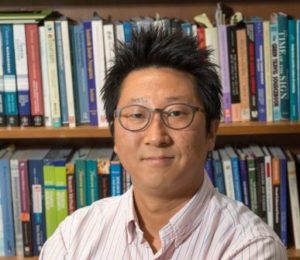 What do the stars of Harry Potter have in common with the characters of Home and Away?
What do the stars of Harry Potter have in common with the characters of Home and Away?
They both inspire captive audiences from across the globe to visit their film sets and even re-enact their favourite scenes, according to Flinders University tourism expert Dr Sean Kim (pictured).
“People form a certain emotional attachment to the characters they see on film or TV and that’s the main driver of why audiences want to go to these places,” Dr Kim, a senior lecturer in tourism in the School of Humanities, said.
“When audiences visit these locations they try to copy a particular scene they liked, such as two lovers sitting on a bench or a having snowball fight, because they are so emotionally engaged with the characters and engrossed in their ‘lives’,” he said.
“In Asia, Korean TV soaps are amazingly popular and that drives many Asian populations to Korea to see the film locations and walk in the shoes of the characters.
“It’s the same situation in Australia, lots of UK tourists come here to swim at Summer Bay or drive down the fictional cul-de-sac of Ramsay Street.”
Dr Kim said his research showed the phenomenon of “film tourism” had a large impact on the tourism industry.
“We can’t measure the exact dollar value but we have empirical evidence to show that popular media has a significant economic impact on tourism around the world.
“Take, for example, Harry Potter in the UK, The Lord of the Rings in New Zealand and The Da Vinci Code in France – those three films are prime examples of how a Hollywood blockbuster can lead to a huge influx of tourists in three different countries.
“The whole media package, from the dramatised storylines to the fictitious but identifiable characters, makes people want to go there.”
Dr Kim, who has spent the past four years at Flinders analysing the complex relationships between popular media and tourism, is now about to begin a new study on the combined impact of the popular book-cum-blockbuster hit Eat, Pray, Love on Balinese tourism.
His ongoing work in the field has just been recognised with one of Flinders 2012 Vice-Chancellor’s Awards for Early Career Researchers, an annual program to reward and promote individuals who have made an outstanding contribution to University research since finishing their PhDs.


This is a very creative and informative research, am surprise no one had thought of doing this study earlier. Now that we know that popular media affect tourism, small countries who need to boost their economy by way of tourism can consider promoting their best sites for movie productions.